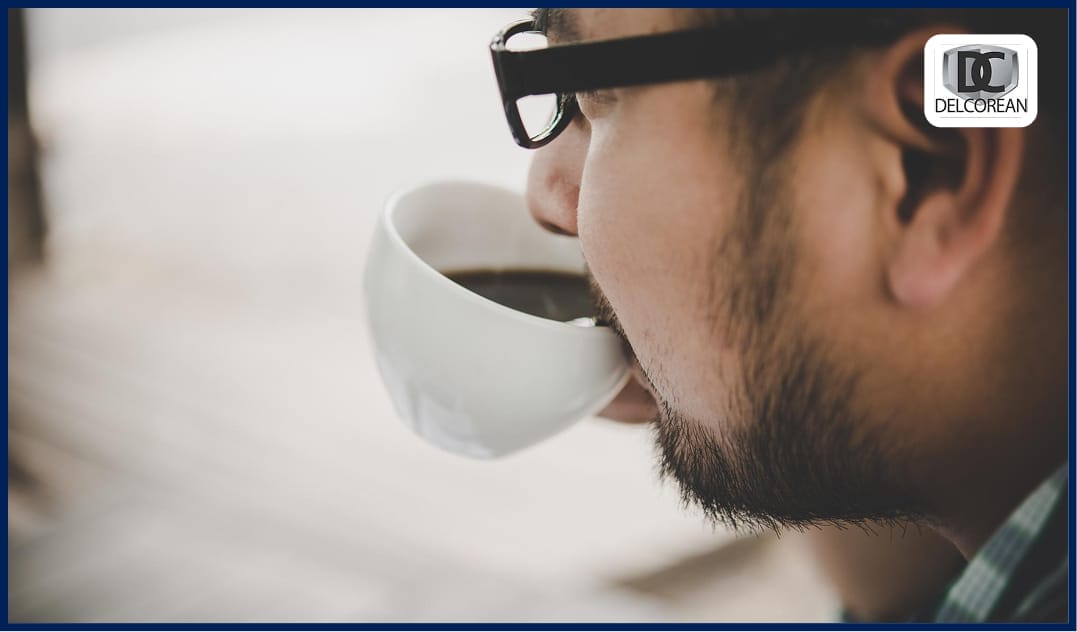If you take that morning coffee or grab an energy drink in the afternoon, you may wonder if caffeine is causing you muscle cramps. Many people feel this way and want to know if caffeine is linked to cramping. Knowing how caffeine and cramps work together will help you make good choices for your muscles and your health.
The Caffeine-Muscle Cramp Connection
Caffeine on its own doesn’t cause muscle cramps. However, it can lead to things that cause cramping more often. You can look at caffeine as something that may help start cramping if there are already other things going on.
When you drink or eat caffeine, a few changes happen in your body. These changes can sometimes lead to muscle spasms. Understanding this connection can help you enjoy caffeine while reducing your risk of discomfort

How Caffeine Affects Your Body’s Cramp-Prevention Systems
Dehydration
Caffeine is often said to be a diuretic, which means it can increase how often you urinate. However, this effect is typically mild. In fact, most people who consume caffeine regularly develop a tolerance to this, and they’re unlikely to lose fluids significantly under normal conditions. That said, in some cases—especially when caffeine consumption is high or water intake is low—mild dehydration can occur, which can increase the likelihood of muscle cramps.
Dehydration affects your muscles in several ways:
-
It slows down blood flow to muscle tissues.
-
It makes it harder for muscles to get the nutrients they need.
-
It can cause muscles to feel more stiff and be more likely to get spasms.
-
It affects how your body keeps its temperature steady when you do physical activity.
Electrolyte Imbalance
Caffeine may contribute to an imbalance in electrolytes — such as calcium, magnesium, and potassium — especially when consumed in excess or when hydration is inadequate.
Here’s how each electrolyte plays a role:
Calcium is very important for muscle contraction. If you do not have enough calcium, your muscles might not work as they should. This can lead to cramping.
Magnesium supports healthy muscle function by helping muscles relax properly and reducing overexcitability that can lead to spasms. Without enough magnesium, your muscles can become overly sensitive or ‘jumpy,’ which may lead to persistent spasms or cramping. Magnesium plays a crucial role in calming nerve and muscle activity.
Potassium helps control how your muscles move and sends signals to your nerves. If you do not have enough potassium, you might feel weak. You may even get muscle cramps. These cramps often happen in your calf muscles or in other big muscles in your body.
Common Areas Where Caffeine-Related Cramps Strike
Muscle cramps can show up in many places in your body. Some areas feel it more often than others when caffeine is the cause of these cramps.
Leg Cramps and Calf Pain
Leg cramps often happen in the calf. Lots of people feel these muscle spasms, and they can hurt a lot. A cramp can start fast, and you may feel it while you sleep or when you are active. The big muscles in your legs need enough electrolytes and water to work well. This helps stop cramps and spasms from coming.
Other Common Cramping Areas
-
The muscles in your feet and toes help you stand and walk.
-
The muscles in your hands and fingers help you hold and pick up things.
-
Your abdominal muscles help support your body and keep it stable.
-
Your back muscles help you move and keep your posture straight.

Who’s Most at Risk?
Some groups of people can get muscle cramps from caffeine more easily:
-
Athletes and active people who take in a lot of caffeine
-
People who have several cups of coffee or energy drinks every day
-
Those who already have problems with their electrolyte levels
-
People who do not drink much water in a day
-
Older adults, since their bodies can feel caffeine’s effects more than others
Prevention Strategies: Enjoying Caffeine While Avoiding Cramps
The good news is that you don’t always have to stop drinking caffeine to help with muscle cramps. Here are some useful ways to deal with this:
Stay Hydrated
For every cup of coffee or any caffeinated drink, try to drink an extra glass of water. This can help mitigate caffeine’s effects by increasing bathroom trips, which can also prevent dehydration.
Balance Your Electrolytes
Include foods rich in calcium, magnesium, and potassium in your diet.
-
Leafy greens and nuts are good sources of magnesium.
-
Dairy products and leafy greens both give you calcium.
Time Your Caffeine Intake
Try to limit your caffeine intake right before bedtime. It is also best not to drink it right before intense physical activity. This can make you more likely to get cramps.
Natural Relief Methods for Muscle Cramps
When you get cramps in your muscles, there are some natural things you can try to feel better:
Stretching and Movement
Gentle stretching of the affected muscle can help with cramping. If you have cramps in the calf, you can pull your toes toward your shin and keep your leg straight. This may help make the cramping feel better.
Massage Therapy
A gentle massage can help when a muscle cramps up. It may help get more blood to the area and help the muscle feel looser. Begin with gentle, circular movements using your hands, and gradually press harder as the muscle spasm subsides.
Heat and Cold Therapy
Alternating warm and cold applications can help with muscle spasms. This is a way to give relief from cramping. It can also help to calm spasms in the body.
When to Seek Professional Help
Muscle cramps, most of the time, are not a big problem. But you need to talk to a doctor if you get cramps and feel worried, or if something feels wrong.
-
This happens often. There is severe cramping that stops you from doing your daily tasks.
-
Cramps do not get better, even when you try to take care of them yourself.
-
Muscle spasms come with swelling, redness, or changes in your skin.
-
You feel cramping, and at the same time, there is muscle weakness.

Cramp911 Provides Fast-Acting Relief When You Need It Most
When you get sudden muscle cramps, having something that works fast can help a lot. Cramp911 is easy to use. It is a roll-on designed to provide quick and direct relief for cramps and spasms.
This new product offers several benefits for people who experience cramps.
Easy to Use: The roll-on is simple to put right on the spot where you feel pain. You can use it for leg cramps, calf cramps, or muscle spasms in any part of your body. It provides fast relief and is effective for various types of cramps or spasms.
Fast-Acting Formula: Cramp911 is made to work fast. It helps you feel better when you need it the most. The product is for you if you experience cramps from working out or muscle cramps at night. The fast-acting formula in Cramp911 can help alleviate cramping and may reduce the likelihood of further spasms if applied early.
Targeted Relief: Oral medicines go through your whole body. Cramp911 lets you treat the cramping muscle. You get focused relief right at the spot you need it.
Portable Solution: The small roll-on design is easy to take with you. You can keep it in your gym bag, purse, or medicine cabinet. This way, you have it ready when cramps start.
Many people feel better knowing they have Cramp911 with them. It helps them feel confident that they can maintain an active lifestyle and enjoy their preferred beverages, including those with caffeine. They do not have to worry about cramps or sudden muscle cramps catching them off guard.
Living in Harmony with Caffeine
The link between caffeine and muscle cramps does not need to worry you. If you know how caffeine works in your body, you can feel better about it. Caffeine can change your electrolyte balance. It can also affect how much water is in your body. But you can still drink and enjoy caffeine. You just need to watch your hydration and electrolytes. By doing this, you can stop cramping before it starts and enjoy your favorite caffeinated drink without the discomfort.
Remember, it is essential not to have too much. Most people can drink a small or medium amount of caffeine with no problem. It often does not give them cramps. This happens more when they drink enough water and eat foods with good electrolyte levels. A healthy diet is key for this and helps keep cramps away when you have caffeine.
If you experience cramping, don’t panic. There are several gentle, natural remedies you can try to get relief. Gentle stretching, massage, and staying hydrated may help. If you need quick and reliable relief, keep something like Cramp911 close by.
Your journey to understanding and dealing with muscle cramps that happen with caffeine is your own. What helps one person may not help another. So, be patient with yourself as you look for what works best. If you feel unsure, you can always ask a doctor or expert for help. If you find the right way, you can still enjoy your caffeine and avoid muscle cramps.


